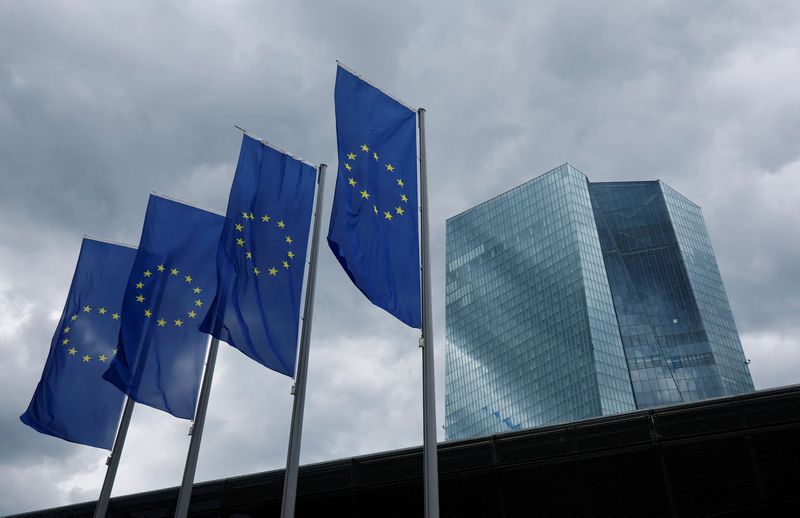
FRANKFURT (Reuters) – European Union members should contemplate joint borrowing to fund key investments in defence, digitalisation and the green transition, the authors of a blog published by the European Central Bank said on Thursday.
“The public funding gap of 900 billion euros … cannot be closed without additional involvement of the Union,” said the blog’s authors, mostly economists from the ECB.
The EU agreed to jointly borrow around 800 billion euros ($855 billion) to fund its post-pandemic recovery but some of members states, particularly Germany, insist that this must be a one off and there should be no further joint debt issuance.
“Budget reprioritisation, new own resources, and joint borrowing are all avenues to consider,” the authors said in a study that does not necessarily represent the ECB’s opinion.
New fiscal rules agreed by the EU would give governments some leeway to fund investments, but that would still not be enough and some members are already highly indebted.
The funding gap could be between 0.6% and 1% of the EU’s gross domestic product per year and disproportionate reliance on public investment at a national level could run into administrative capacity constraints, crowd out private investment and may not even be affordable for some, they argued.
The blog’s authors also said that joint debt issuance would boost the market for safe assets, a type of highly sought after debt instrument.

“Joint issuance would also enhance the chances of establishing a genuine European safe asset, which will be important for further developing the capital markets union.’
($1 = 0.9352 euros)






